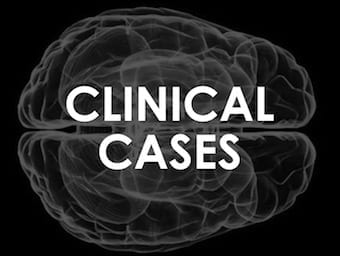
Bullet in the Head
A gun shot wound to the head provides the basis for a question-and-answer based discussion on penetrating traumatic brain injury and multi-modal monitoring.

A gun shot wound to the head provides the basis for a question-and-answer based discussion on penetrating traumatic brain injury and multi-modal monitoring.

An elderly woman had a fall. On examination she has an unusual constellation of eye movements. What's going on?

A man is about to intubated for coma. What can be learned from a rapid neurological exam that includes assessment of eye movements? Could this be a pseudocoma?

The spinal patient from Microbial Mystery 005 has returned from the operating theatre. Within 15 minutes she is unconscious. What's going on?

You have an emotionally labile patient in the department who sounds like 'Donald duck'. Before rounding up some students to 'pimp' you decide to test yourself on bulbar and pseudobulbar palsies so that you don't get caught out...

4 more scenarios for Peter Gates Brainstem Rule of 4. Neurological lesion identification and neuro examination quiz

4 more scenarios for Peter Gates Brainstem Rule of 4. Neurological lesion identification and neuro examination quiz

You are asked to review a 65 year-old man who is comatose (GCS 3) with small pupils (2 mm bilaterally). He has a history of diabetes mellitus and bipolar disorder. He was discharged from hospital yesterday, following a surgical procedure.

Refractory shock in trauma is still most likely due to occult ongoing haemorrhage; shock may be due to the underlying cause of trauma e.g. MI leading to car crash

Apply ATLS/APLS protocol: primary survey to exclude life-threatening injuries, secondary survey, re-evaluation and definitive care.

Consider a 45 year-old HIV positive male with right hemiparesis and fluctuating conscious state. His CT head is shown below.

Cyanide is a potentially lethal toxic agent that can be found in liquid and gaseous form. First discovered in 1786 by Scheele, who extracted it from the dye Prussian blue - and promptly died from exposure to the vapours